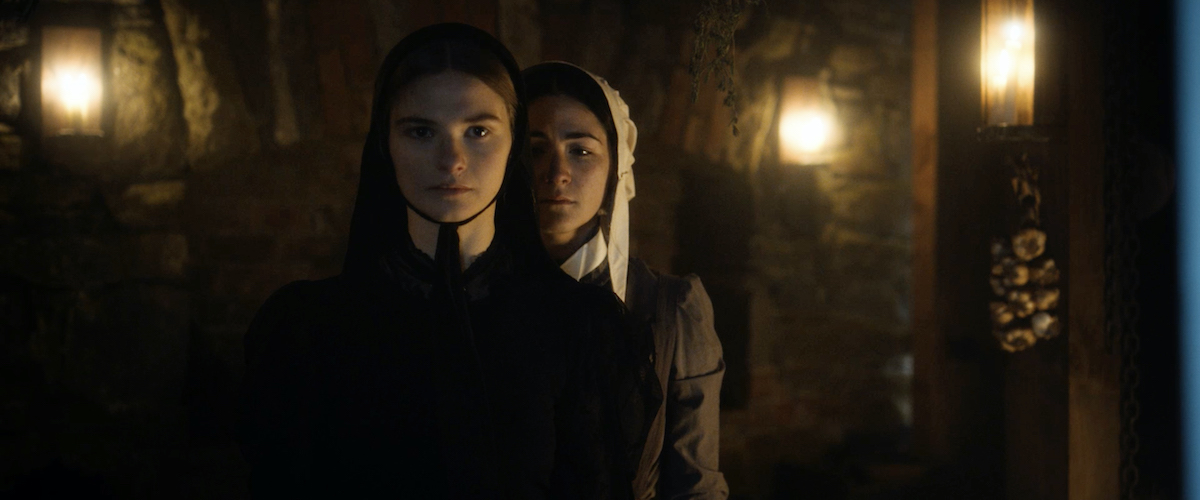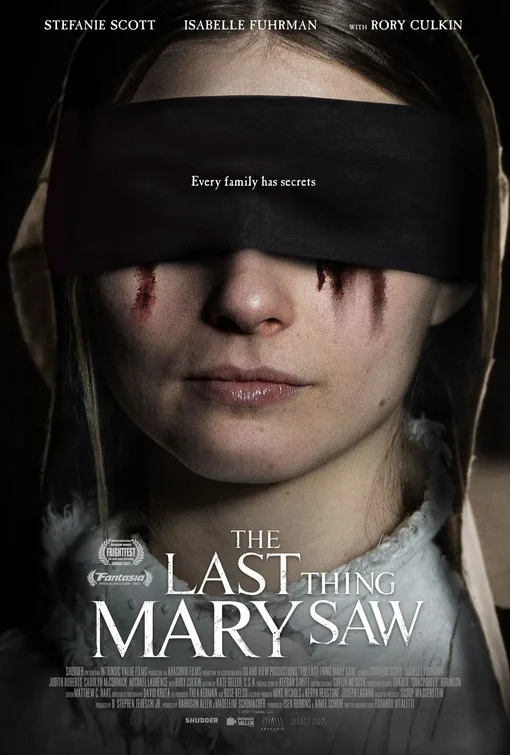Edoardo Vitaletti’s debut feature “The Last Thing Mary Saw,” set amid a New England Puritan community in 1843, is a case study in how to do more with less. This film about forbidden love between two teenage Puritan girls unfolds in and around a handful of structures that seem to have been built during the era in which the story is set. David Kruta’s camerawork appears to use only natural light, even in scenes where candles provide the only illumination. The actors often speak in whispers, or in placid, even tones meant to hide emotion. It has a you-are-there feeling that’s unusual in low-budget period pictures.
What are we looking at, though? This film debuted on Shudder, a channel specializing in horror, and it does boast a number of shocking images pertaining to the sadistic violence of the girls’ community, which crushes any behavior that doesn’t conform to their rigid norms. But there are relatively few instances of supernatural horror or more earthbound sorts of suspense, and in the end the movie feels more like a harsh, somewhat masochistic lesbian love story set in-period, with body horror closeups of mangled flesh and nasty wounds and scars. This critic doesn’t usually get hung up on the kinds of definitions, but it’s not hard to imagine a viewer coming away from this film thinking that if it’s horror, then “Silence” and “Midnight Express” must be, too.
The story begins with the title character (Stefanie Scott from “Insidious 3”) in jail and blindfolded, being interrogated by a local constable (Daniel Pearce) about her crimes. We travel into the not-too-distant past and learn the details of the case: Mary began an affair with her family’s maid Eleanor (Isabelle Fuhrman of “Orphan”) after a book of Sapphic woodcut illustrations was brought into the house. The idea that a book could impel a particular sort of sexual desire to take root where none otherwise existed is ludicrous, but such are the thought processes of these communities, where the most important thing is reinforcing patriarchal hierarchies of control through intimidation and terror.
There’s a bit of a community bait-and-switch going on, with the girls being rather elaborately blamed for the sinister energies coursing through the place even though they genuinely haven’t done anything wrong (at least by 21st century secular Western standards). The bulk of the film’s story is about what happens to the couple after. Mary’s parents (Carolyn McCormick and Michael Laurence) seek “correction” from the community’s matriarch (a terrifying performance by Judith Roberts, first seen by genre buffs in “Eraserhead”).
What follows might be classified as a crude early form of “aversion therapy” techniques, from isolation to being forced to kneel bare-legged on dry rice for days at a time, a torture that cracks open and infects the skin. Brutal punishments are common for an array of crimes, including escape. The film takes a turn into “Heavenly Creatures” territory, with the girls considering a murder conspiracy to end their suffering; fleeing has too high a failure rate, as a limping local perimeter guard explains.
“The Last Thing Mary Saw” is so effective as a vehicle for performances, atmosphere, and period detail, and so convincing an examination of suffering under the boot-heel of a cult, that one may wish that it added up to more. One might also wonder if mislabeling might engender resentment from horror fans who have narrow taste in material and came in expecting spectacular supernatural action or gory kills with farm implements. “Children of the Corn” this definitely ain’t, but it feels like the opening installment in a filmmaking career worth following.
On Shudder today.




















